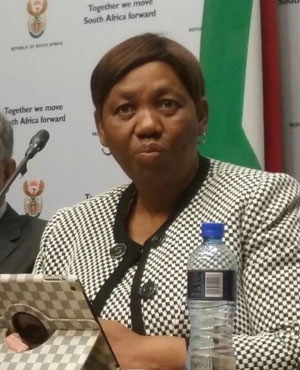Sudáfrica/Agosto de 2017/Fuente: News 24
Resumen: Los alumnos pierden alrededor del 40% del tiempo de aprendizaje cada año en las escuelas sudafricanas porque los maestros suelen saltar clases, según un estudio del Consejo para el Desarrollo y la Empresa. El estudio, publicado el 1 de agosto y titulado Normas Profesionales de Profesores para Sudáfrica: El camino hacia un mejor rendimiento, desarrollo y rendición de cuentas ?, atribuyó la pérdida de tiempo de aprendizaje al fracaso del actual modelo de evaluación docente. IQMS). El informe dijo que el modelo de evaluación de maestros se había debilitado hasta tal punto que los maestros estaban obteniendo puntos de desempeño para asistir a las reuniones del personal y no para buscar ganancias tangibles para mejorar la enseñanza y el aprendizaje en las escuelas.
Pupils lose about 40% of learning time every year in South African schools because teachers habitually skip classes, according to a study by the Council for Development and Enterprise.
The study, released on August 1 and titled Teacher Professional Standards for South Africa: The Road to Better Performance, Development and Accountability?, attributed the loss of learning time to the failure of the current model of teacher assessment – the Integrated Quality Management System (IQMS).
The report said the teacher-assessment model had been weakened to such a degree that teachers were getting performance points for attending staff meetings and not for targeting tangible gains to improve teaching and learning in schools.
“Teachers go shopping on paydays. They are doing extra jobs while they are full-time teachers,” an education expert who has knowledge of the report, but who has asked not to be named, told City Press.
The SA Democratic Teachers’ Union (Sadtu) in 2013 proposed that the Quality Management System (QMS) replace IQMS. “Until Sadtu has signed it off, it cannot be implemented. It has been watered down by government because of politics,” the expert said.
Accountability and leadership essential
The Council for Development and Enterprise commissioned researchers from the Joint Education Trust to look at the development of teacher professional standards in developed and developing countries. The study assessed the potential of teacher professional standards to improve teacher quality in South Africa.
The study proposed that government review IQMS and introduce teacher professional standards that have been implemented in a number of countries.
“Teacher evaluation in South Africa should be both formative [aimed at personal growth of a teacher] and summative [undertaken as part of performance review focusing on teacher accountability],” it proposed.
It said the evaluation should “appraise teacher performance, strengthen accountability and support professional development”.
It questioned QMS, saying it arguably suffered from a fundamental design fault. It recommended that the department of basic education (DBE) and provinces hold teachers accountable by maintaining a strict school timetable to avoid frequent skipping of classes.
It should institute a high level of managerial accountability and require teachers to be in class when they should to reduce the loss of learning time.
Although such moves were likely to be met with union resistance in forums such as the Education Labour Relations Council, the report said government should move from rhetoric to action on this matter using the deadlock-breaking mechanism provided for by law.
Commenting on the report, Rhodes University-based public service monitor head Zukiswa Kota said accountability and leadership were essential.
“The overall accountability and administration of schools, districts and the sector as a whole must see parallel changes to support the development of enhanced teacher-assessment practices in a sustained way.”
Sadtu general secretary Mugwena Maluleke said allegations that the union had not signed the IQMS were not only false, but malicious.
“The IQMS was signed and … Sadtu proposed a review of the IQMS in order to deal with its weaknesses. Sadtu proposed QMS to strengthen the role of the principal or deputy principal, which was overlooked by IQMS.”
DBE spokesperson Elijah Mhlanga said: “The department supports processes that have the potential of raising the bar of teacher performance, encourage professional development and enhance accountability. The recommendation in the report requires further consultation with the relevant stakeholders in education.”
A dialogue on strengthening teacher professionalism was addressed by Basic Education Minister Angie Motshekga last week and parts of the report were discussed.
Fuente: http://www.news24.com/SouthAfrica/News/sa-teachers-skip-classes-20170812






 Users Today : 13
Users Today : 13 Total Users : 35459479
Total Users : 35459479 Views Today : 16
Views Today : 16 Total views : 3417774
Total views : 3417774